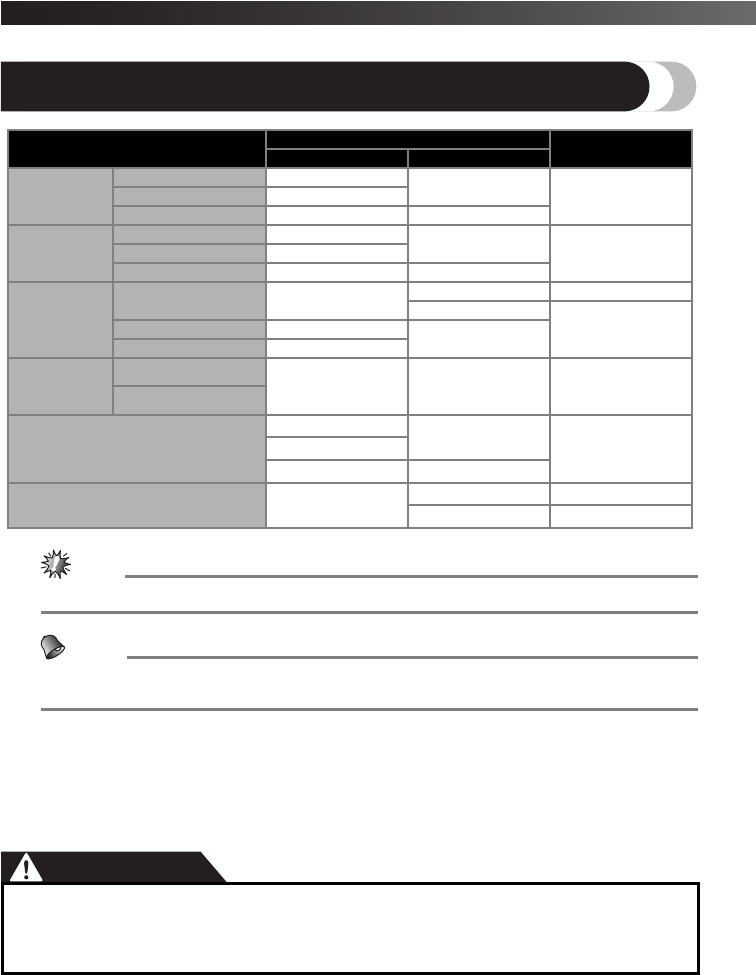
KNOWING YOUR SEWING MACHINE ————————————————————————————————————————————————————————————————————————————————————————————————————————————————————————————————
—
————————————————————————————————————————————————
—————
17
FABRIC, THREAD, AND NEEDLE COMBINATIONS
Note
● Never use a thread weighted #20 or lower. It may cause machine malfunction.
Memo
● The lower the thread number, the thicker the thread; and the higher the needle number, the thicker the
needle.
■ Ball point needle
Use the ball point needle when sewing on stretch fabrics or fabrics where skipped stitches easily occur.
The factory recommended needle is “HG-4BR” (Organ). Schmetz needles “JERSEY BALL POINT” 130/705H SUK
90/14 may be used as a substitute.
■ Transparent nylon thread
Use a 90/14 to 100/16 needle, regardless of the fabric or thread.
CAUTION
Fabric Type/Application
Thread
Size of Needle
Type Size
Medium weight
fabrics
Broadcloth Cotton thread
60–90
75/11–90/14
Taffeta Synthetic thread
Flannel, Gabardine Silk thread 50
Thin fabrics
Lawn Cotton thread
60–90
65/9–75/11
Georgette Synthetic thread
Challis, Satin Silk thread 50
Thick fabrics
Denim Cotton thread
30 100/16
50
90/14–100/16
Corduroy Synthetic thread
50–60
Tweed Silk thread
Stretch fabrics
Jersey
Thread for knits 50–60
Ball point needle
75/11–90/14
(gold colored)
Tricot
Easily frayed fabrics
Cotton thread
50–90
65/9–90/14Synthetic thread
Silk thread 50
For top-stitching
Synthetic thread
Silk thread
30 100/16
50–60 75/11–90/14
●
Make sure you follow the needle, thread, and fabric combinations listed in the table.
Using the wrong combination, such as heavyweight fabric like denim with a small needle
(65/9-75/11), may bend or break the needle. The wrong combination may also cause the seam
to be uneven, the fabric to pucker, or the machine to skip stitches.


















